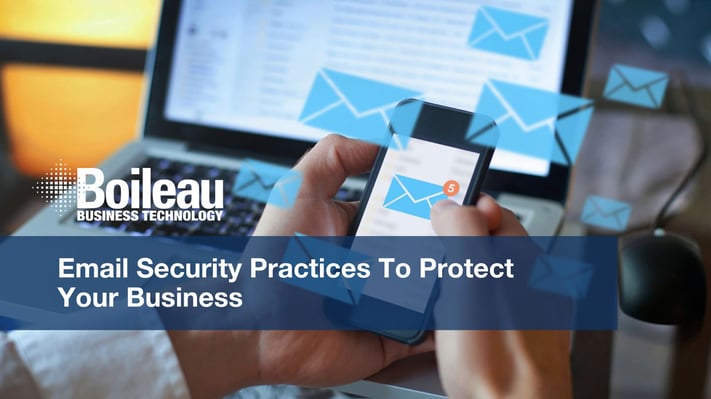
Email is used by businesses all around the world to communicate with suppliers, invoice clients, and collaborate internally, so it serves as one of the primary forms of communication.
Email, however, is not always secure. Emails are sent in plain text and are saved on the computers of the recipients. There is no assurance that your message will be secure while it is in progress or while it is at rest. Thus, you are putting your trust in the computer's administrator to keep your email private.
Ransomware, malware, and viruses are all on the rise, and they impact thousands of organisations every day. Businesses are finding it more and more difficult to stay ahead of malware as attackers spend more time and money creating sophisticated software that can get beyond security measures.
Businesses can safeguard themselves from malware, including ransomware and crypto virus, by implementing complete email security. Email is the starting point for more than 90% of malware threats. By thwarting incoming email threats, good email security allows you to keep your company's data safe from attackers.
Email practices that can prevent cyberattacks
You can minimise the chance of email-related cyberattacks by using email security measures. In order to reduce your exposure to business and security risk, this blog explains top crucial corporate email security best practises.
1. Plan Ahead for CyberSecurity
One of the best corporate email security advice is to have a cybersecurity plan in place. Although if it just makes up one part of your entire security plan, it is most definitely not the least crucial. A cybersecurity plan is the cornerstone of your company's security, from putting standards in place to making sure your employees are prepared to face and respond to any threats.
2. Implement Email Policy & Regular Risk Assessments
A corporate email policy formally outlines standards for appropriate email usage. An email policy will ensure that everyone is on the same page on what is acceptable and what is not when using company email. This implies that if an employee violates the established terms, they may be held accountable.
Besides corporate email retention concerns, restrictions on the kinds of files that employees can share with others, advice on what constitutes banned material, and the handling of confidential information, the policy should also cover these other issues. For instance, a company email policy might specify that management has access to view any employee's emails that are stored on the mail server but not on the user's desktop.
3. Practise Strong Email Defenses
Implementing robust email protection is one of the first and most important procedures that businesses should adopt. Organisations may prevent malware threats and phishing emails from reaching employee inboxes by putting robust email security measures in place, such as a Secure Email Gateway. These services can be used on-site, in the cloud, or in a hybrid approach. They filter emails before they reach your email network, removing spam, graymail, and any other hazardous email kinds.
4. Encrypt Email
Email encryption is a crucial email security procedure that prevents unauthorised access to both business and personal communications. The best way to keep emails secure, as with all digital content, is to encrypt them. Encryption, which is basically just a collection of complicated algorithms, makes it impossible for anyone to access the content of your email unless they have the right encryption keys. Encrypting emails is primarily done to ensure that they are only ever received by the intended recipient and that all of the data they contain is safe and secure. Attackers will not be able to access private business emails if organisations utilise encryption. Moreover, it defends emails against man-in-the-middle assaults. Provide security awareness training to make sure that everyone in the organisation is educated on phishing and how to avoid it. Platforms for security awareness training offer users engaging training resources to educate users about email threats. Vendors of security awareness training frequently offer phishing simulations as well. This enables administrators to make fake phishing emails to send to their users in order to test whether they can recognise dangerous emails and, if not, to give them the necessary training.
4. Implement Security Awareness Training
Provide security awareness training to make sure that everyone in the organisation is educated on phishing and how to avoid it. Platforms for security awareness training offer users engaging training resources to educate users about email threats. Vendors of security awareness training frequently offer phishing simulations as well. This enables administrators to make fake phishing emails to send to their users in order to test whether they can recognise dangerous emails and, if not, to give them the necessary training.
Partner for Success
Working with a managed services provider helps mitigate the risks of cyberattacks and have 24/7 cybersecurity.
Contact us today for a free consultation and jump onboard now for up to 20% off technology products and services.

